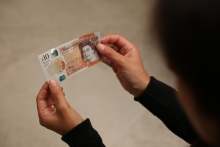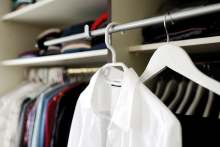Why do companies greenwash?
Companies use greenwashing to boost – or recover – their reputation. They also use it to appeal to environmentally-aware consumers.
With awareness about climate breakdown and loss of biodiversity growing, more and more people are concerned about the damage from major corporations.
Many people are also looking for more ethical alternatives. Companies use greenwashing to try and capture this market and gain competitive advantages over their rivals.
By maintaining a positive image, corporations also try to show that the ‘problem is in hand’. This way, they can avoid or delay actions by governments, for example effective laws against pollution or emissions.
Which companies are involved in greenwashing?
Unfortunately greenwashing is widespread.
40% of green claims made on the websites of clothes, cosmetics and food companies could be misleading consumers, according to an assessment of 500 websites by the International Consumer Protection Enforcement Network, a global group of consumer protection authorities. For fashion, the number could even be as high as 60% and up to 90% for some brands.
A growing number of companies are being called out for their greenwashing practices. Here, we give five examples.





